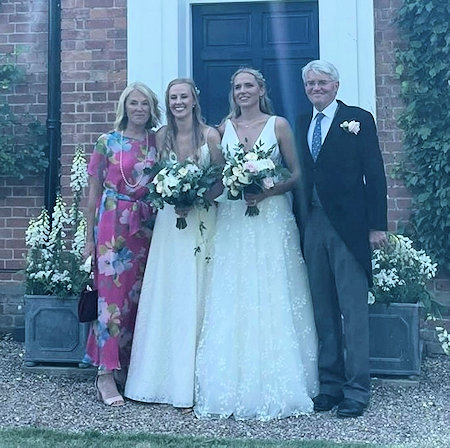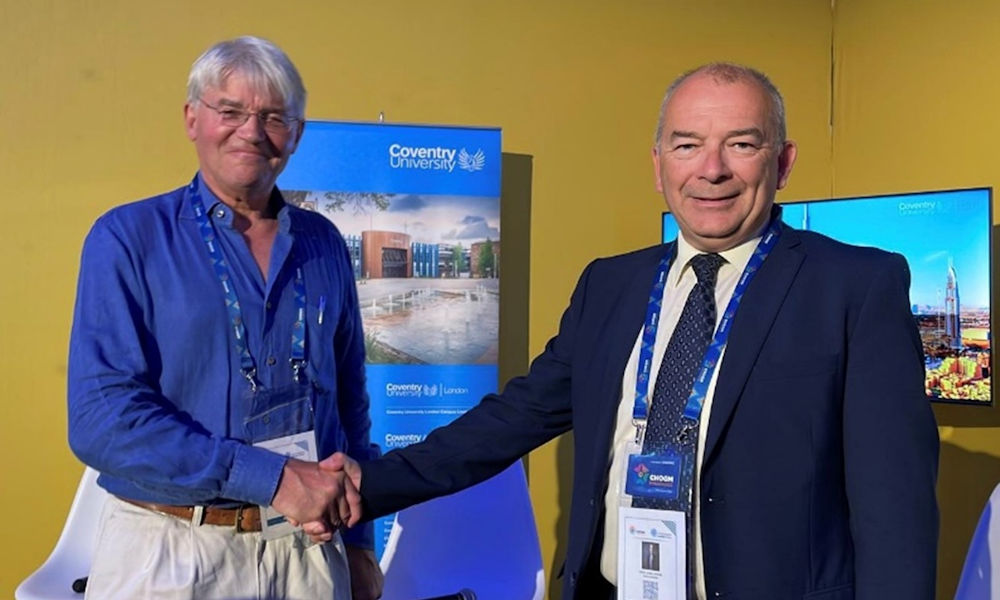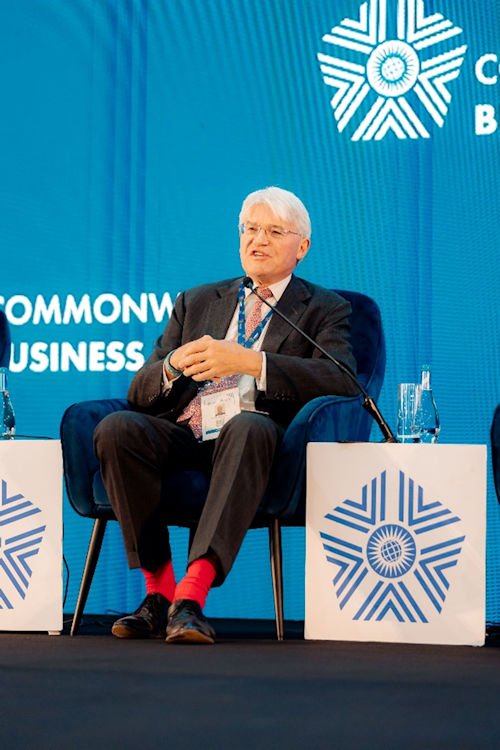Last weekend we celebrated my daughter Rosie’s wedding. What a happy, loving and sunny affair it was!

However, it was back to earth on Monday in the House of Commons with my constituency agenda before I prepared to travel to Kigali to take part in a series of events taking place on the side-lines of the Commonwealth Heads of Government Summit (CHOGM), focusing on investment and particularly the West Midlands.
When I am out of the country, constituency business continues as usual. The wonder of modern technology means I can monitor and respond to concerns and cases remotely.
And of course I have a wonderful team in London and Sutton Coldfield who do a brilliant job as we all work on behalf of all my constituents!
What is CHOGM?
The Commonwealth Heads of Government Summit is a chance for Commonwealth leaders to get together and hash over a range of challenges facing the Commonwealth family of 54 nations, while reaffirming their commitment to common values and agree actions and policies to improve the lives of all their citizens.
CHOGM usually takes place every two years and is hosted by different member countries on a rotating basis. But as with so many events delayed due to Covid, this summit is taking place two years later than scheduled. Indeed, the last time it took place was in the UK in 2018!
Better late than never, as they say. And I am pleased that Rwanda remained determined to host it despite the uncertainty and setbacks besetting preparations.
The highlight of the summit is the meeting of all Heads of Government, and indeed the Prime Minister will be joining other leaders today for a series of high-level discussions. Her Majesty the Queen is usually in attendance, but this year Prince Charles is representing her.
On the side-lines of the summit, various specialist forums take place allowing for experts and policymakers to engage in detailed and forensic discussions on important issues from investment and climate change to women’s equality and health.
Here is a summary of the events and campaigns I have taken part in this week.
Coventry University Launch of Africa Hub
No sooner had I touched down in Kigali than I felt right back at home! My first port of call was to see the launch of Coventry University’s Africa Hub which will be working with Rwandan institutions.
The Africa Hub aims to open the door to closer cooperation on matters of mutual importance and to explore synergies between education, research and innovation. It links the West Midlands firmly to central Africa and there are mutual advantages for us all.
I want to congratulate Coventry University’s Vice Chancellor Professor John Latham for heading up a valuable programme that is far from home but important to us all. I am pleased to see the West Midlands making waves.

Commonwealth Business Forum panel session
On Thursday I spoke at a panel session exploring opportunities for investment in Rwanda and across the commonwealth.
I spoke about my association with the country, which goes back to when I was shadow international development secretary, and the great potential it demonstrated then and now.
At the time I set up a social action initiative called Project Umubano. The purpose of the project was to ingrain international development into Conservative Party values.
But the experience was eye-opening in more ways than one. Many had only heard about Rwanda because of the 1994 genocide; the country was synonymous with tragedy and brutality.
However what we saw was a country clearly on the move. The people were ambitious, driven and hard working. Refusing to be defined by their past, they looked only to the future. Their defiance and determination are paying off handsomely.
Rwanda is today one of the fastest growing economies in Africa. The country’s reliance on foreign aid has gone down dramatically due to the government’s private sector-led economic plans. Rwanda is regarded as one of the easiest places to do business on the continent and has a reputation for being a straight and trustworthy partner. It has punched well above its weight, having attracted billions of dollars’ worth of foreign investment, which proves what politically stable and aspirational societies can achieve.

Neglected Tropical diseases (NTDs)
Also on the agenda this week in both the House of Commons and in Rwanda is the fight to tackle Neglected Tropical Diseases, and along with others I have been urging the Prime Minister to make sure that the UK makes a commitment to eradicating NTDs, and uses its voice to push for meaningful commitments from other Commonwealth members.
One billion people are currently living with the destructive consequences of a Neglected Tropical Disease (NTD), including blindness, malnutrition and disfigurement. NTDs stop children from going to school, adults from being able to hold down a job, and trap whole communities in cycles of extreme poverty.
Unlike Covid, these diseases do not need complex vaccination rollouts or new scientific discovery. Many can be treated and prevented by medication that already exists - for just 50p per person. But these illnesses are “Neglected” because they are often overlooked when international organisations decide how to spend public money to make the world a better place.
Philanthropic organisations have been leading this fight against NTDs, but still urgently need the support of governments to ensure NTDs are eliminated once and for all.
An end to NTDs within the next decade is within our grasp, and could be a great success story for Global Britain. Investing public money in eradicating NTDs worldwide would provide the British taxpayer with a real return they, and this Government, could be proud of.
In other national and local news…
Fighting global food insecurity
The government has today announced it is committing £372 million of support to countries on the food security frontline, helping those countries hardest hit by rising global food costs, including many Commonwealth states. The money will be used to fund vital institutions such as the World Food Programme and the UN’s global emergency response fund.
The government is also working with allies to end Russia’s weaponization of hunger – by breaking their blockade of Ukraine’s ports.
More help for home owners
The government has also today launched its Help to Build Scheme, which aims to give thousands of families the opportunity to build their own home. Under the £150 million package, people will be helped to build their own home with just a 5% deposit required towards land and building costs.
Complementing the success of other schemes, including Help to Buy and Right to Buy - which have helped more than 765,000 people become homeowners - the latest scheme is clever because families will have a chance to own homes in the places they want to live.
All of the government’s combined schemes are opening up more and more opportunities to become home-owners – something that was considered beyond many people’s reach for far too long.
Thank you, National Lottery!
I often talk about the importance of community – and I’m proud to represent such a community-minded place as the Royal Town, which has many charities and organisations working for different causes.
It would be remiss not to mention the support and funding local organisations receive form external players such as the National Lottery, which are crucial in these straitened times, particularly as we seek to overcome challenges caused by the pandemic.
In the past 3 months, Sutton Coldfield community groups have benefitted from £268,179.00 of National Lottery funding and I wanted express my heartfelt thanks for this support which is a lifeline for these charities and the people they help.
Groups to have benefitted so far include Our Place Support Mentoring Scheme which provides mentoring and support services for people who are living with a range of mental health issues.
The National Lottery really is a wonderful resource and I encourage local groups to apply for grants to enable them to carry out specific projects.
Information about how to apply for funding can be found at The National Lottery Community Fund’s website: www.tnlcommunityfund.org.uk.
